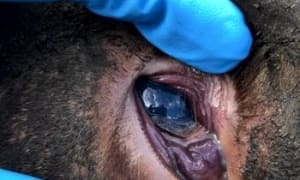MINERAL deficiencies can cause more than 20 animal health problems, such as decreased milk production, loss of appetite and many others.
For more than 35 years, Agmin has manufactured and marketed the Nutrimin range of micro and macro nutrient drenches for ruminants, plus the Nutrimin Pasture Spray product range which is designed to correct trace element deficiencies at the source.
It is important to understand the purpose and benefits of both tools.
Drenches certainly have a place, but they shouldn't replace the foundation of building healthy pastures that support optimum livestock performance.
Nutrimin drench treats nutrient deficiency issues as they arise by supplementing minerals that are essential for animal health and production.
Latest Stories
However, using drenches seems to have become the default position and the only treatment option considered – this is a mistake.
Growers must look at the source of any deficiencies and correct nutrient balance in their soil and pasture, which in turn corrects deficiencies in the animals themselves.
One of the most common nutrient deficiencies is cobalt, which is the central component of vitamin B12.
Although cobalt does not directly affect plant growth, its indirect effect on soil nutrition, plant and animal health is enormous, and without it life would not exist in its present form.
B12 is essential for the aerobic decomposition of soil organic matter, which in the process releases locked–up nutrients in the soil and results in the production of humus.
The humus in turn holds onto nutrients in a plant–available form and also absorbs water, restricting evaporation during hot summers.
It's important to note that if cobalt deficiency prevents the microbial synthesis of vitamin B12, then the nitrogen fixation of legume rhizobium is reduced and as much as 150kg/ha slow release organic nitrogen production may be lost to the farmer.
Introducing cobalt to the soil in protected (chelated) form not only results in nitrogen production in the nodules of legume plants, but also sees naturally produced B12 absorbed in the pasture plant so this important vitamin becomes available to the animals.
In ruminants, vitamin B12 deficiency blocks the free fatty acid (folic acid) in feed that metabolises into glucose, which is a major source of energy.
Vitamin B12 restores the animal's energy metabolism by converting pasture feed into glucose and energy.
Nutrimin Pasture Sprays correct trace element deficiencies at the source to improve pasture growth and nutritional quality, providing livestock with adequate nutrition and eliminating the need for drenches.
By systematically addressing deficiencies in the soil, the improved pasture and crop production results are tangible and sustainable.













